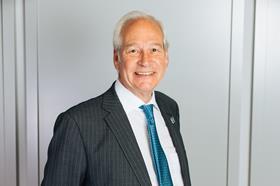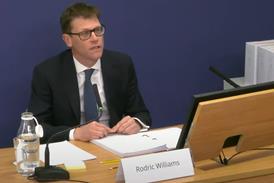The hunt for six family court magistrates in the Midlands has sparked outrage that justice is being dispensed by non-lawyers recruited on a 'first come, first served' basis.

Applications for the six vacancies in Birmingham and Solihull opened on Monday. However, a government document detailing magistrate vacancies states that 'only the first 20 fully completed applications received after the opening date will be considered for interview'.
Elsewhere, the document states that a recruitment campaign for up to 10 magistrates in Gloucestershire would close on 31 August or 'once the limit of 30 eligible applications is reached'. The recruitment process for 25 vacancies in Kent will close 'once the maximum number of applications have been received'.
The document does not contain an official reason for the policy. However, guidance for a recruitment drive in Berkshire, which closed last month, states: 'If there are more eligible candidates that we have the capacity to interview, we will select for interview based on the date the application forms were received. This approach to the selection of applicants for interview takes account of the anticipated volumes and the limited capacity to process a high number of applications'.
The Magistrates' Association, which highlighted the Birmingham vacancies and recruitment policy on Twitter yesterday, found itself on the receiving end of outraged tweets yesterday evening, prompting the association to repeatedly stress that it was not responsible for the policy.

John Bache, association chairman, told the Gazette: 'There is an urgent need for more magistrates across England and Wales, with shortages in many areas already and more than half of current magistrates due to retire in the next decade. An extensive recruitment programme is therefore required and it is unfortunate that on this occasion only the first 20 fully-completed applications will be considered, given the need to ensure that applications come from the widest possible pool of people. Vacancies should be advertised as extensively as possible and the process must be fair, transparent and accessible to all.'
The controversial recruitment process was flagged up in a 2014 report by Transform Justice. The charity's director, Penelope Gibbs, a former magistrate, said today: 'In 2014 Transform Justice pointed out that first come first served recruitment was inimical to diversity. It still is. It benefits those in the know and those not in full time work who can get on a computer as soon as recruitment opens.
'Unfortunately this is just the tip of the iceberg of problems with magistrate recruitment. The whole system is not fit for purpose and leads to a magistracy which is too old, too white and too middle class.'
Directions issued by the lord chancellor for advisory committees on recruiting justices of the peace state that advisory committees 'must be mindful of resource implications when deciding the number of candidates to invite to interview'. Committees are advised to aim to interview an average of three candidates for each vacancy, though discretion can be used when setting ratios. 'The important aim is not to waste time and resources in interviewing a disproportionately large number of candidates for the number of vacancies the committee has to fill,' the guidance adds.
Conservative MP Bob Neill, chair of the House of Commons justice select committee, tweeted yesterday that the committee has agreed to revisit its 2016 report on the magistracy and will look at the recruitment process.

















![David Lester (senior partner at Blythe Liggins), Darryl Barnes, Jagdeep Sandher (head of dispute resolution at Blythe Liggins)[4]](https://d1d8vslyhr7rdg.cloudfront.net/Pictures/274x183/4/2/8/116428_davidlesterseniorpartneratblytheligginsdarrylbarnesjagdeepsandherheadofdisputeresolutionatblytheliggins4_981603_crop.jpg)






18 Readers' comments